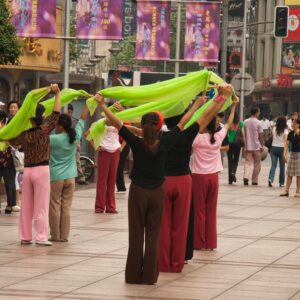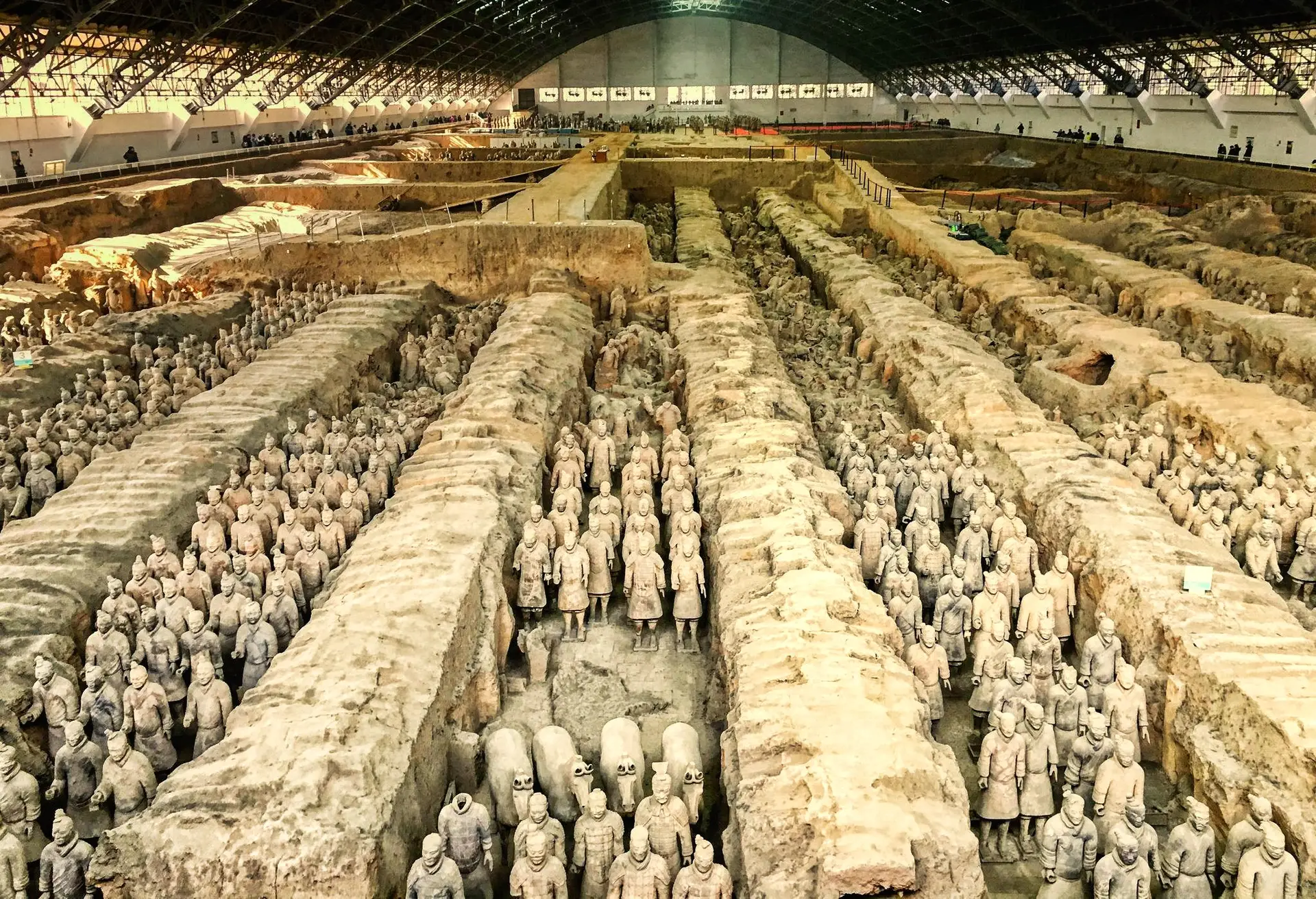China

With its captivating history and culture, China offers a unique blend of experiences, making it one of the world’s most intriguing places to visit!
The metropolises of Shanghai, Hong Kong, and the Great Wall of China are just a few unique experiences that await you.
Planning a trip may present more challenges than other destinations. Still, with the proper research and preparation, you can navigate these hurdles and ensure a smooth and enjoyable journey.
Your readiness is critical to a successful trip, from understanding the restrictions on social media apps to preparing for potential culture shocks.
Keep In Mind

With its vast and diverse landscapes, China presents a unique challenge in finding the perfect time to visit. If you’re seeking warm weather with fewer thunderstorms, consider planning your trip during the enchanting spring (March to May) or the captivating fall (September and November).
Beijing, a city of four seasons, offers a unique weather experience. The city’s weather is fascinating, from hot, dry summers to cold, frosty winters. Three-quarters of the city’s average yearly rainfall falls from June to August. We were there in mid-July, and there was no rain, but it was boiling.
Weather in Shanghai
Rainfall in Shanghai is concentrated during the stormy monsoon months—late spring through summer—and the rest of the year is relatively dry and settled. Summers are hot and humid, with occasional freak thunderstorms. Winter is shorter and often cloudy with drizzle.
Weather in Xi’an
Like Beijing, Xi’an experiences four distinct seasons, each with unique weather patterns. The city occasionally sees winter snow, adding a touch of magic to the landscape. Dust storms, while impacting air quality, create a unique and dramatic atmosphere as temperatures rise dramatically in March and April. This adds a sense of adventure to your visit.
What To Expect
Currency: The currency is the Renminbi.
Credit Cards & ATMS: China is still a cash-based economy outside major cities. However, if you’re visiting a big city like Shanghai or Beijing, you should be okay with using your card. If you have an American Express, you likely won’t find an ATM that accepts the card or any restaurants or stores.
Plugs: The plugs are A, C, and I. The standard voltage is 220 V, and the standard frequency is 50 Hz. I recommend buying a universal adapter.
VPN: Access to popular social media sites like Facebook and Instagram, as well as Gmail and Google Maps, is restricted in China. To overcome these limitations and stay connected, it’s highly recommended that you install a VPN on your devices before your trip.
Safety: This is generally a safe country for visitors. However, as with any travel, it’s important to stay vigilant and be aware of your surroundings.
Do While In China
Respect Personal and Cultural Space
-Greet people with a slight nod or handshake. Avoid hugging or kissing unless you’re very close.
-Accept and present gifts, business cards, and documents with both hands.
Learn Basic Mandarin Phrases
–Simple phrases like Ni Hao (Hello) or Xie Xie (Thank you) can go a long way.
Bring Cash or Use WeChat/Alipay
–Credit cards aren’t widely accepted outside large establishments. Mobile payments are popular.
Respect Chopstick Etiquette
–Place chopsticks neatly on the rest or plate when not in use.
Avoid sticking them upright in rice, as it resembles funeral rites.
Follow Public Behavior Norms
-Queue patiently in lines and give up seats to older people on public transport.
-Use soft tones when speaking in public spaces.
Bargain Politely in Markets
-Haggling is acceptable in most markets but maintains a friendly tone.
Carry a Translation App
-Many locals don’t speak English, so apps like Google Translate can be helpful.
Be Mindful of Taboos
–Avoid discussing sensitive topics like politics, Tibet, or Taiwan.
-Show respect at temples or sacred sites by dressing modestly.
Don't
Don’t Point with Your Finger
–Use your entire hand or a nod to gesture politely.
Avoid Giving Clocks as Gifts
–Gifting clocks (song Zhong) sounds like “attending a funeral” in Mandarin, which is considered bad luck.
Don’t Tip at Restaurants
–Tipping isn’t customary in most parts of China unless you’re in a tourist-heavy area.
Don’t Be Impatient
–Traffic and lines can be chaotic. Stay calm and go with the flow.
Avoid Overpacking Your Itinerary
–Distances can be vast, so give yourself time to explore without rushing.
Don’t Expect Western Toilets Everywhere
–Carry tissues and sanitizer for public squat toilets, common outside major cities.
Don’t Criticize Food or Customs
–Chinese culture places a high value on hospitality, so comments perceived as criticism may offend.
Don’t Openly Defy Rules
–Adhere to regulations, especially in high-security areas like train stations or government buildings.
Don’t leave Tips for Chopsticks in Bowls
–Placing chopsticks on top of bowls is frowned upon, as it signals that you’re done eating. Instead, lay them beside the bowl.
Love Asia
China is the perfect gateway to Asia’s wonders, from ancient temples to buzzing cities. The heart of Asia, China, explores the history, culture, and landscapes that have shaped the continent.
Asia wouldn’t be the same without China—immersing in its traditions, food, and unforgettable sights!
Travelling to China is an enriching experience, but understanding cultural norms and etiquette is essential.
Must-Visit
1- The Great Wall, Beijing’s Forbidden City, and Summer Palace.
2 – Terracotta Warriors in Xi’an.
3- Shanghai’s futuristic skyline and historical Bund.
4 – Chengdu’s Panda Reserves.
5- Zhangjiajie’s Avatar Mountains.
6- Guilin’s karst landscapes and Li River.
7- Tibetan culture in Lhasa.




